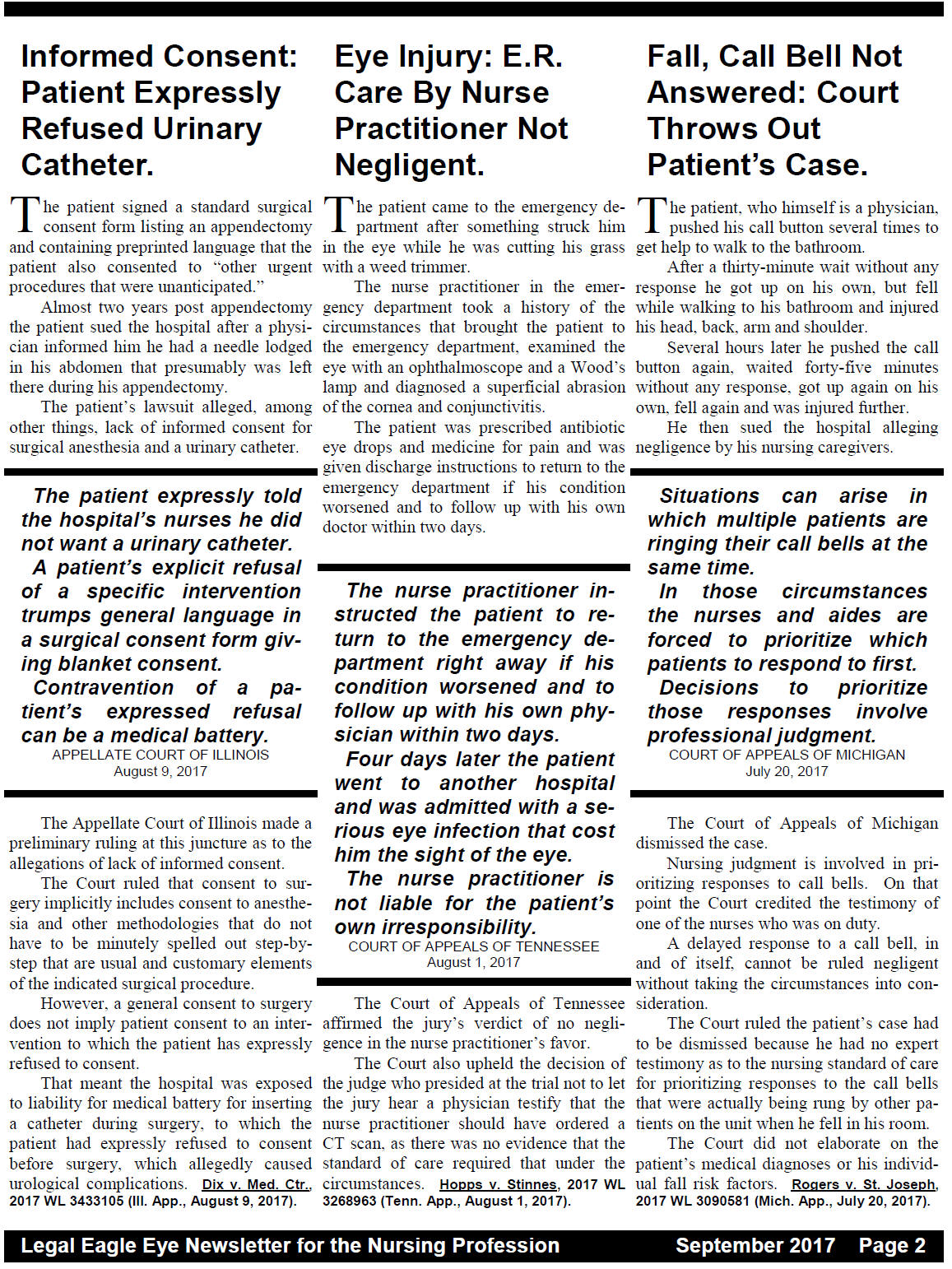
|
Click here for a complimentary copy of the current issue of Legal Eagle Eye Newsletter for the Nursing Profession |

More from nursinglaw.com
http://www.nursinglaw.com/informed-consent-nursing-responsibilities.pdf
The patient expressly told the hospital's nurses he did not want a urinary catheter. A patient's explicit refusal of a specific intervention trumps general language in a surgical consent form giving blanket consent. Contravention of a patient's expressed refusal can be a medical battery.
APPELLATE COURT OF ILLINOIS August 9, 2017
The patient signed a standard surgical consent form listing an appendectomy and containing preprinted language that the patient also consented to "other urgent procedures that were unanticipated." Almost two years post appendectomy the patient sued the hospital after a physician informed him he had a needle lodged in his abdomen that presumably was left there during his appendectomy.
The patient's lawsuit alleged, among other things, lack of informed consent for surgical anesthesia and a urinary catheter. The Appellate Court of Illinois made a preliminary ruling at this juncture as to the allegations of lack of informed consent. The Court ruled that consent to surgery implicitly includes consent to anesthesia and other methodologies that do not have to be minutely spelled out step-by-step that are usual and customary elements of the indicated surgical procedure.
However, a general consent to surgery does not imply patient consent to an intervention to which the patient has expressly refused to consent. That meant the hospital was exposed to liability for medical battery for inserting a catheter during surgery, to which the patient had expressly refused to consent before surgery, which allegedly caused urological complications.
Dix v. Med. Ctr., 2017 WL 3433105 (Ill. App., August 9, 2017).